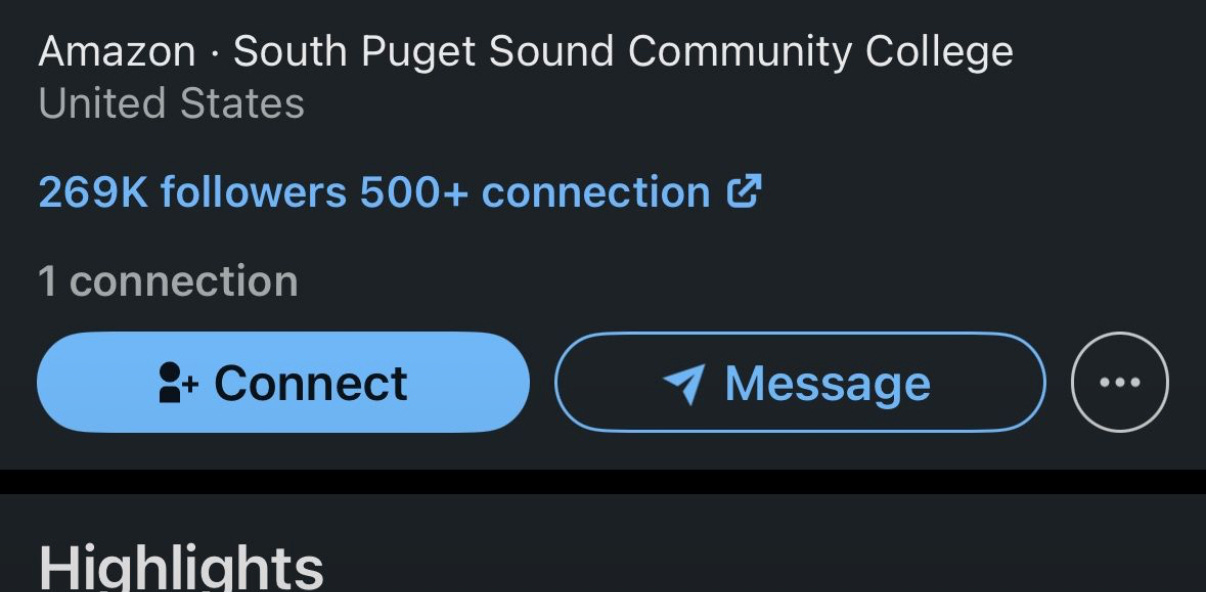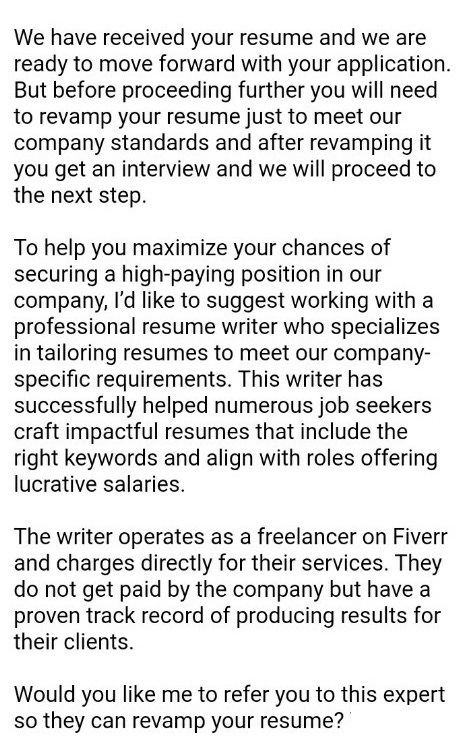How to Spot LinkedIn Job Scams Before They Cost You
Can you trust that LinkedIn job offer? Uncover common scam tactics like fake recruiters, personal email requests & pressure tactics. Identify red flags!
The online job search, especially on platforms like LinkedIn, offers incredible opportunities to connect with recruiters and find your next role. However, this landscape is also fertile ground for scammers preying on the hopes and anxieties of job seekers.
These individuals employ sophisticated and often psychologically manipulative tactics to appear legitimate, build false trust, and ultimately exploit those looking for work. From faking credibility with misleading profile details to pressuring candidates into unnecessary paid services, their methods are varied and constantly evolving.
This article will shine a light on common scam tactics you might encounter, equipping you with the knowledge to recognize the red flags and protect yourself from falling victim.
Spot LinkedIn Job Scams
Scammers use several tricks to make you believe you need their help. They might create a false sense of urgency by quoting made-up statistics, like "recruiters only spend 6 seconds on your resume" or "AI bots are rejecting you."
Let's look closer at tricks these scammers use to appear more legitimate than they are.
1. Fake Profiles
Since LinkedIn fake profiles often get banned by LinkedIn or deleted by scammers, they need quick ways to appear popular and trustworthy since they don’t have time to build up a real reputation. One way they do this is by faking a large number of followers or connections.
Here's how it works: On a LinkedIn profile, you can add links to external websites (like a personal blog or company page). When adding these links, LinkedIn allows you to write custom text to describe them. Scammers misuse this feature.
They might add a link – or even just a placeholder – and write something completely misleading as the link text, such as "5K+ Followers." In reality, this scammer only has 13 actual followers and 10 connections.
They often create fake profiles impersonating influencers, using their recognizable names to trick others.
Why does this trick sometimes work? People often quickly scan profiles, especially when viewing them on smaller phone screens. They might see the large, impressive number written in the custom link text and mistakenly believe the scammer is influential and well-connected.
It's easy to overlook the actual, much smaller follower count displayed elsewhere on the profile if you're not looking carefully. This creates a false sense of credibility for the scammer.
2. Strange Email Practices
You might notice these suspicious profiles frequently reshare posts from other companies, including the one they falsely claim to work for. When they do this, they almost always add their own email address directly into the post or comment.
Pay close attention to that email address. Often, it will be a free email service like Gmail, Hotmail, or Yahoo. Think about it: if someone truly worked as a recruiter or representative for a specific company, wouldn't they use their official company email address? Using a free, personal email address for professional company business is a big red flag. Real employees always use official company accounts!
3. Comments and Off-Platform Requests
Another common tactic is leaving comments on various posts, especially popular ones or those where job seekers are active. The goal of these comments isn't always to add value to the conversation but simply to get people to click on their profile. Sometimes, they might even tag you directly in a comment, even if you don't know them, just to make sure you get a notification and look.
What often happens next? If you engage with them or accept a connection request, their immediate goal is usually to move the conversation away from LinkedIn. They might quickly ask you to contact them via WhatsApp, Telegram, or another messaging app, often using a personal phone number. Be very cautious about this. Scammers prefer less traceable platforms where it's easier to run their schemes privately.
Is AI the new Excel? Shopify just made AI skills a baseline job expectation. This shift isn’t just coming—it’s here. Read this if you want to stay relevant: AI Skills Now Required: Is Your Job Safe?
How to Talk to AI - Master the Language of the Future
Learn how to harness AI effectively and get better results every time. You can grab the book on Amazon (Paperback, Hardcover, Kindle) —no matter where you are!
4. Fake Resume Rewrite Pressure
This is a particularly nasty trick targeting hopeful job seekers. Here's how it works: You either apply for a position (which might be fake) or get contacted by someone pretending to be a recruiter for a legitimate-looking company.
After an initial interaction (maybe even a brief phone screen), they tell you something like, "You have a great background, and we're interested, but your resume format/content isn't quite right for our system/hiring manager."
Then comes the hook: They'll say they can't move you forward unless your resume is revised. Conveniently, they "know" or "highly recommend" a specific resume writing service or individual writer. They'll imply or state outright that if you use this specific service (and pay their fee), your revised resume will be fast-tracked, and you'll be moved immediately to the next round (e.g., an interview with the hiring manager).
This is an example of the type of message people are receiving.
Legitimate recruiters and companies never require you to pay for a specific service as a condition of advancing in the hiring process. While they might offer general resume tips, pressuring you to pay a recommended vendor with the promise of advancement is a huge warning sign of a scam. They profit either directly from the fee or through a kickback from the "resume writer."
A Word of Caution: The "Open to Work" Frame
Be extra careful on LinkedIn, especially if you use the green "#OpenToWork" frame on your profile picture. While this frame effectively signals to recruiters that you're looking for a job (as a recruiter, I am reaching out to those people first), it also acts like a bright light for scammers.
These individuals often reach out offering services like resume writing, selling resume templates, or claiming they can help you tailor your resume to "beat ATS robots," or "pass AI screenings." Based on what I've seen and heard from people who paid for these services, the advice is often extremely basic and sometimes provided by people who have no real understanding of how hiring or resume screening actually works. In other cases, people just lost money and never received any service.
5. Urgent "Limited Slot" Impersonation
Scammers sometimes send direct messages or emails pretending to be recruiters or even high-level managers from well-known companies. They'll often claim to have seen your profile and be extremely impressed, offering a seemingly fantastic opportunity that's a "perfect match."
The trick here is the manufactured urgency. They'll emphasize that there are very few slots available, the role needs to be filled immediately, or that they are only reaching out to a select few candidates. This pressure tactic aims to make you act quickly without thinking critically. They might ask you to provide personal information (like your phone number, home address, date of birth, or even bank details for "direct deposit setup") right away via email or a messaging app to "secure your spot" before you've even gone through a formal application process or proper interview.
Watch out for: unsolicited offers that seem too good to be true; extreme urgency; requests for sensitive personal information early in the process (especially outside of a secure application portal); and communication often coming from slightly off-brand or personal email addresses.
6. Vague Job Descriptions & Information Harvesting
You might see posts or receive messages about exciting job opportunities with very high salaries or amazing perks, but the actual job description is incredibly vague. Details about specific responsibilities, required qualifications, or even the exact company division might be missing or generic.
When you express interest or apply, the "recruiter" might engage you in conversation but focus more on gathering information from you rather than providing details about the role. They might ask broad questions about your past salaries, detailed work history, specific skills, or personal circumstances under the guise of "seeing if you're a fit." The actual job may not exist; the goal is often to harvest your personal and professional data for identity theft, to sell to other scammers, or to build a profile for more targeted phishing attacks later.
Red flags include: job descriptions lacking specific details despite attractive headlines; recruiters who avoid answering direct questions about the role or company specifics; and an excessive focus on gathering your information before providing substantial details about the opportunity.
They're often falsely claiming to work for big-name companies and exaggerating salary numbers to grab attention, get more likes, shares, and collect resumes from people.
Note: Many of these job ads/posts request that you send your resume to a Gmail address or communicate using free email services like Outlook.com, Gmail.com, and others. This should be your sign that something isn’t right.
7. Fake Testimonials from Fake Profiles
Last but not least, this is the most deceptive tactic I've seen recently: Some recruitment agencies and scammers are creating fake LinkedIn profiles. They then use these fake accounts to comment on posts where people announce they are "#OpenToWork."
In these comments, the fake profiles pretend to be job seekers who supposedly found a great job through that agency. They write positive messages recommending the agency's services, trying to trick real job seekers into thinking the agency is very successful and helpful. It's basically a fake review disguised as advice from a fellow job seeker.
Many of these fake profiles are run by scammers. In my next LinkedIn newsletter, I’ll share a detailed breakdown of how this type of scam operates, helping more people protect themselves from these schemes.
Let’s take a closer look at the manipulation tactics these folks are using. Very often they employ several psychological tactics to make the message seem legitimate and enticing:
Authority:
Mentioning "SHRM-certified professional" lends credibility.
"20 years in recruiting" suggests expertise and experience.
"Randstad USA" uses a known, reputable company name to build trust
Scarcity:
"Reach out quickly as she has limited time!" creates a sense of urgency and encourages immediate action, preventing the recipient from thinking critically.
Social Proof:
"Has helped many land jobs quickly" implies that others have benefited, making the offer seem more desirable.
Helpfulness.
The scammer pretends to be a person who just wants to help another person to get a job.
Targeting Vulnerability:
The message is explicitly directed at someone "Looking for job opportunities?" Job seekers are often in a vulnerable state and may be more susceptible to scams promising help.
Impersonation:
They are using a fake LinkedIn profile without any connections. Impersonation is a very common tactic.
Spot Job Scams Before They Cost You
Navigating today’s job market means showing off your skills while staying cautious. Scammers are getting crafty, using tricks like tweaking profiles, creating fake urgency, and using phony testimonials to push unnecessary paid services.
They often target people with the "#OpenToWork" tag, playing on psychological tactics like authority, scarcity, and social proof. Keep in mind, real recruiters and companies act professionally—they use official communication (company emails), provide clear job details, and never charge for things like resume reviews or job advancements.
By staying alert, questioning anything unusual, trusting your gut, and watching for the red flags mentioned here, you can avoid scams and focus on real opportunities.
Stay smart, stay cautious, and protect yourself from job scams!











Thank you
Viewdns.info is also a job seekers friend. Use the WHOIS lookup on a domain. If it was registered relatively recently (< 1yr or 2) proceed with great caution. See if you can verify the phone number provided through official means. Scammers will stop at nothing to get to desperate job seekers. Stay safe out there.